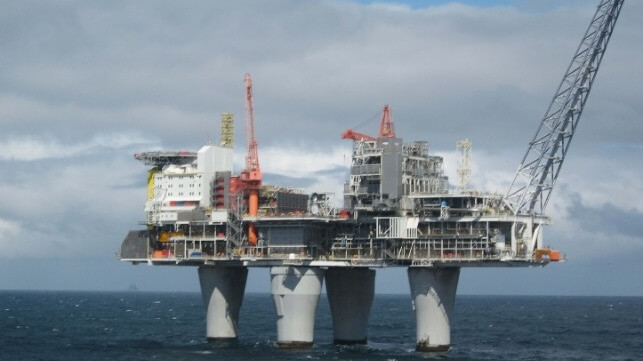European Commission Backs Norway's Offshore Oil and Gas Industry

In a remarkable shift in tone, the European Commission is expressing strong support for offshore oil and gas E&P off Norway, reflecting the rapid change in EU energy policy after the Russian invasion of Ukraine.
The EU is a major consumer of oil and gas, but it is not [known for encouraging more production as a matter of public policy. Historically, the European Commission has emphasized the bloc's intent to reach net-zero emissions in the long term rather than its plans to secure a supply of natural gas in the short term. Denmark, the EU member state with the largest offshore oil and gas sector, has even pledged to phase out E&P altogether by 2050.
But Europe's rapid disconnection from Russian energy is prompting a reorientation of priorities, particularly for pipeline natural gas, which is logistically difficult to replace. This is an urgent question ahead of the 2023-24 winter heating season: Russian state-owned energy company Gazprom has partially or fully cut gas supplies to customers in 12 EU countries, including a sharp 60 percent reduction in flow on the Nord Stream pipeline to Germany. The constriction of supply is driving up prices, and the benchmark Dutch TTF natural gas futures contract is up 300 percent year-on-year.
In this context, politically reliable Norwegian natural gas is most welcome in the EU. Norway has been producing gas at a high volume since the start of the year, and could supply about 100 TWh of extra gas (about six percent of annual EU imports from Russia) over the span of 2022.
The European Commission and the Norwegian government have announced plans to strengthen energy ties and promote offshore development for the long term. "The EU supports Norway's continued exploration and investments to bring oil and gas to the European market," said the EC and Norway in a joint statement. "Norway has significant remaining oil and gas resources and can, through continued exploration, new discoveries and field developments, continue to be a large supplier to Europe also in the longer term beyond 2030."

that matters most
Get the latest maritime news delivered to your inbox daily.
The statement noted that Norway's offshore sector has very low emissions from production activity, less than half of the global average. This makes Norwegian oil and gas more compatible with Europe's climate objectives than comparable supplies from elsewhere - notably the supplies from Russia, the world's leading emitter of methane.
The parties "agreed to step up cooperation in order to ensure additional short-term and long-term gas supplies from Norway," and to work together on renewables in the long term.
